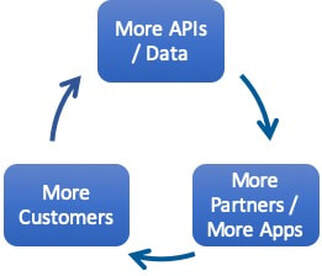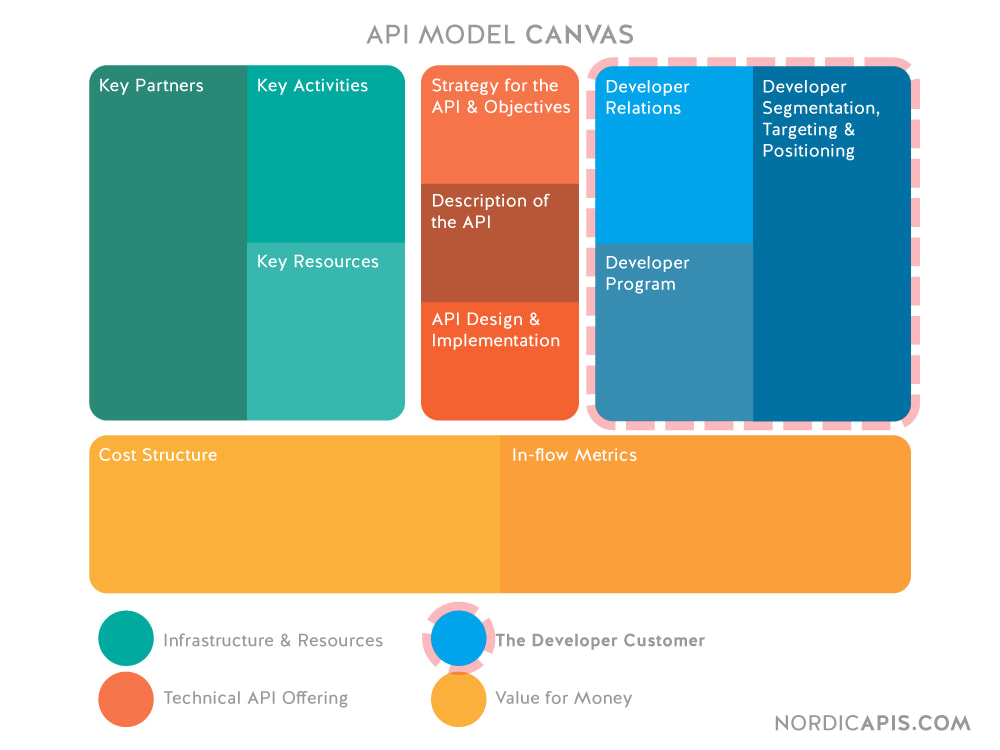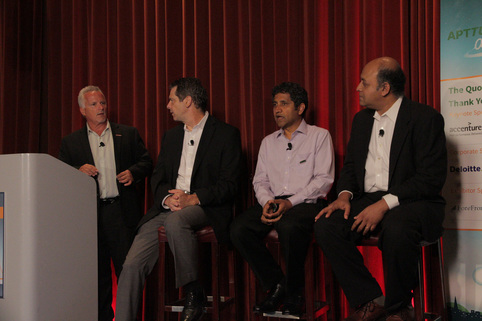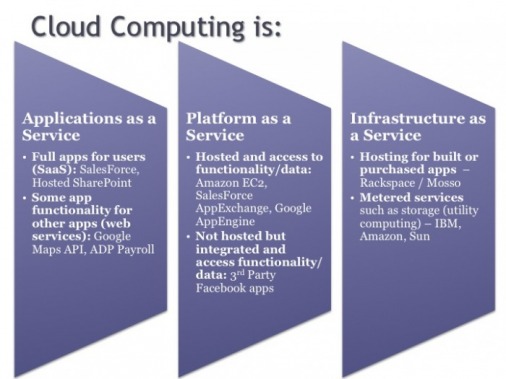
WHAT
While the term "platform" can have a broad range of meanings in just the technology market, the focus of this article is API-centric cloud platforms or platforms as a service (PaaS). These provide software functionality that enable other developers to build complementary technologies, products, or services.
Platforms and their specific APIs can be used to integrate and extend the capabilities of distinct SaaS offerings. Often this involves a client giving permissions to another provider to use their data in the SaaS platform. For example, these integrations or extensions can be seen in B2B application marketplaces such as Salesforce App Exchange, SAP Concur App Center, or Cisco AppHub.
They can also be used just to provide functionality for other applications and may be white labelled and not listed in the platform provider's marketplace. There are many API-first or developer-first companies whose primary offering is API-based or platform-based such as Stripe, Plaid, or Twilio.
The targeted developers can be internal to your company, can be part of a partner organization, can be working for a customer already using your SaaS offering, or can be a completely new client just interested in using the API’s functionality. They can build capabilities that interface to and impact the UX (user experience), business processes or workflows, underlying data, or infrastructure (such as IaaS providers like AWS) of a platform and associated SaaS offering; or again the functionality can be used just to augment the client’s offering.
(As described in Wikipedia, the "platform economy" includes these “innovation” or SaaS integration platforms along with B2C transactional platforms such as Uber, Amazon, and AirBnB - not to mention the data / advertising model of companies like Facebook and Google.)

Platforms enable companies to create more value and even new business models by digitizing their services and connecting with other similarly enabled entities. For example you can connect with other platforms and/or different channels where your customers are consuming digital services: AWS, Salesforce, Uber, Square, Microsoft (O365), SAP, WeChat, Slack, etc.
These business models can include direct revenue from the customers and partners using these externalized services, for example based on the volume of API calls. This would be the case for developer-first companies like Stripe or Twilio. For customers extending your SaaS offering that they already subscribe to, it could also just be an up-charge to the cost of your core products. For integration partners, it could or maybe should be based on the value of the specific use cases that are enabled by using your APIs and the associated data. (Here is more information on SaaS pricing models)
What is often overlooked or at least undervalued is the indirect revenue impact of extending the overall value of your offering, it will now be made up of both your products and services and the complementary products and services of your partners. This can lead to benefits such as a higher competitive barrier and a higher base cost of your core products.
The biggest mistake I have seen across a variety of companies is not coming to agreement on the value they want to create with a platform.
Is it:
- Direct revenue (often emphasized too much too soon)?
- Indirect revenue (expanding the offerings a customer can build or get from a platform-based ecosystem increases the possibility a customer will buy and not attrite)?
- PR/marketing around becoming a platform company?
Platforms and platform partners ecosystem also enable viral growth by creating a network effect: the more APIs being exposed and the more data that is accessible
- leads to more paying partners creating more applications, integrations, and value
- which leads to more customers using (and paying for) your platform and generating more data (and you externalizing more APIs)
- which leads to more paying partners creating more applications, integrations, and value.
Later technologies such as blockchain could usher in new era of api-driven business models as Joe Liebkind contends. However much like the same way that 25 years ago we couldn’t imagine the value and capabilities the web delivers today; we have little ability to understand how the proliferation of blockchain’s distributed, trusted, transactional capabilities will impact our economy (more on this in an upcoming blog post).
HOW
Whether building from scratch or undertaking the long, difficult journey to transform current (often on-premise often monolith) software to being services and API based; it's going to be tough.
In short, you need to consider your platform business offering like any other business offering
- What are the objectives or strategy
- How are you going to design, build, test and deliver it
- How will your customer use it
- How will you manage and maintain it throughout its lifecycle
Another way to consider the business plan for an API or platform is the API Model Canvas (created by Manfred Bortenschlager based on the Lean Canvas).
5 Keys to a Great API are
- Provide a valuable service
- Have a plan and a business model
- Make it simple and flexible
- It should be managed and measured
- Provide great developer support
Every platform requires developers; here are a few tips to provide great developer support and build a vibrant developer community
- Develop inbound SEO acquisition and brand to attract developers
- Create scalable content (tutorials, guides, API references)
- Build community and boost champions
- Have a dedicated developer support and onboarding team (You need people focused on the success of the big partners that your PM and BD team recruited to expand your offering.)
- Understand your audience (and not all of them will be developers. The decision makers and stakeholders in partner companies will include CROs, business development executives, and CEOs!)
Platforms and Product Led Growth
Platforms can help you expand or build your offering and your company in a variety of ways: by organically or inorganically becoming a multi-product line company (good luck doing this without being a platform company), by enabling system integrators (SIs) and value-added resellers (VARs) to implement or extend your SaaS offering, by enabling product partners to provide integrated related functionality, and by allowing you to more easily integrate with supplier partners that provide functionality.








 RSS Feed
RSS Feed